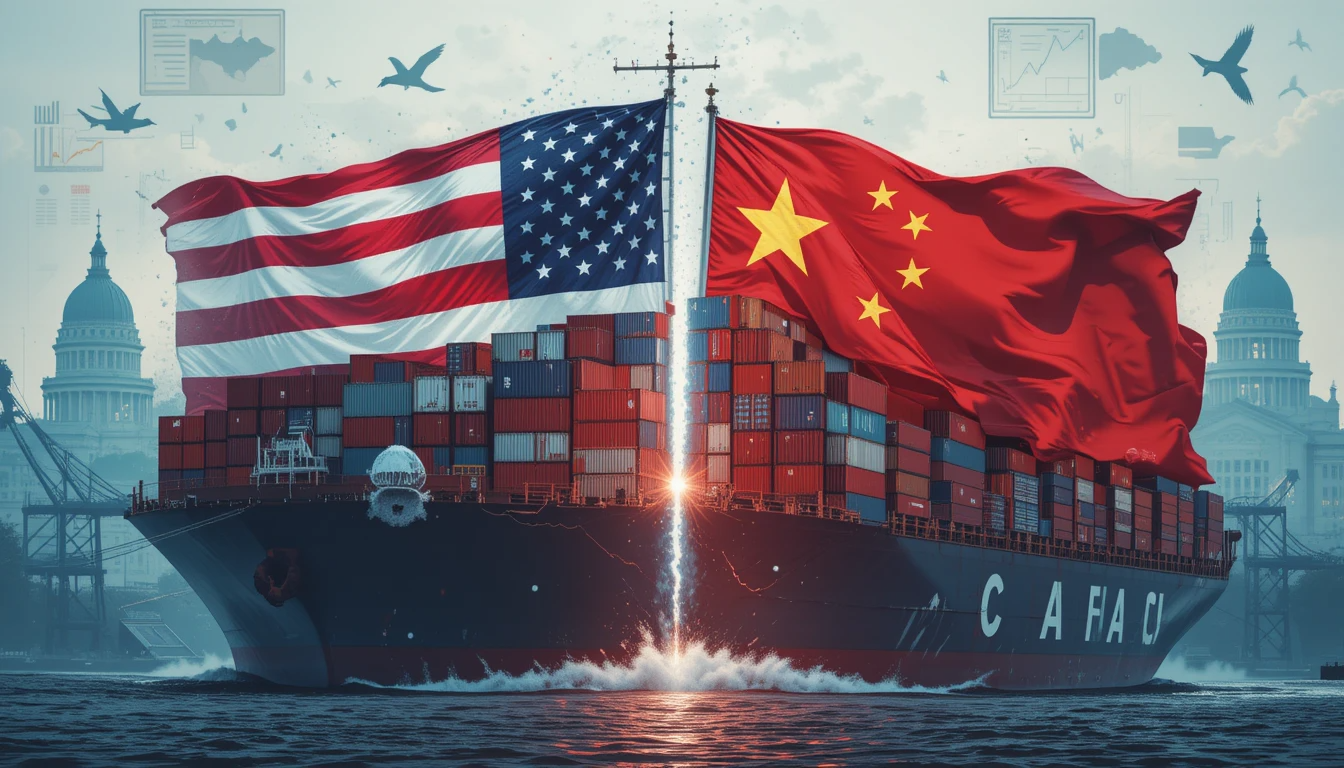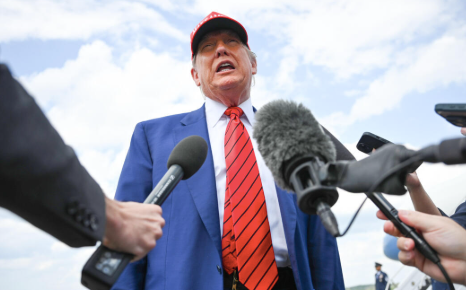
March 6, Thursday 2025, China: In response to U.S. President Donald Trump’s recent imposition of additional tariffs on Chinese imports, citing concerns over fentanyl trafficking, China has expressed strong opposition and announced a series of countermeasures. The Chinese Embassy in the United States issued a statement emphasizing that China is prepared to engage in any form of conflict, including a trade war, if necessary.
The embassy’s post on X (formerly Twitter) stated, “If war is what the US wants, be it a tariff war, a trade war, or any other type of war, we’re ready to fight till the end.”
Chinese officials have criticized the U.S. for using the fentanyl issue as a pretext for imposing tariffs, labeling it a “flimsy excuse.” They argue that the United States should approach the matter through consultation based on mutual respect and equality, rather than resorting to punitive measures.
The Chinese Foreign Ministry’s spokesperson, Lin Jian, remarked that the U.S. is responsible for its fentanyl crisis and that China’s efforts to assist have been met with unjustified blame and pressure. Lin stated, “The US, not anyone else, is responsible for the fentanyl crisis. Instead of recognizing our efforts, the US has sought to smear and shift blame to China and is seeking to pressure and blackmail China with tariff hikes.”
In retaliation, China has implemented several countermeasures targeting U.S. products and entities. The Chinese Ministry of Commerce announced additional tariffs on a range of U.S. agricultural products. Specifically, a 15% tariff will be imposed on items such as chicken, wheat, corn, and cotton, while a 10% tariff will apply to products including soybeans, sorghum, pork, beef, aquatic products, fruits, vegetables, and dairy products.
Beyond tariffs, China has also taken action against specific U.S. companies. Fifteen U.S. entities, including Leidos, have been added to China’s export control list, restricting their access to dual-use items from China. Additionally, ten U.S. companies, such as TCOM, have been placed on China’s “unreliable entity list,” prohibiting them from engaging in import and export activities related to China and from making new investments in the country. Furthermore, Illumina Inc. has been specifically restricted from exporting gene sequencing devices to China.
China has also filed a complaint with the World Trade Organization (WTO) against the U.S. tariff increases, asserting that these measures violate WTO rules and constitute unilateralism and trade protectionism. A spokesperson for the Chinese Embassy in the U.S. commented, “China has taken necessary countermeasures by relevant laws and regulations and the basic principles of international law, which are completely justified and reasonable.”
The escalating tensions have raised concerns about the potential impact on global trade and the economies of both nations. Experts warn that the ongoing trade dispute could lead to increased prices for consumers and disruptions in various industries. The situation remains fluid, with both sides expressing readiness to defend their interests, potentially prolonging the conflict.
As the dispute continues, the international community watches closely, hoping for a resolution that avoids further escalation and promotes fair trade practices. The focus now shifts to potential diplomatic engagements that could de-escalate the situation and address the underlying issues contributing to the tensions. Keep Reading questiqa.com for more updates.
Get more News Headlines On Our Social Platforms And Do Follow.




